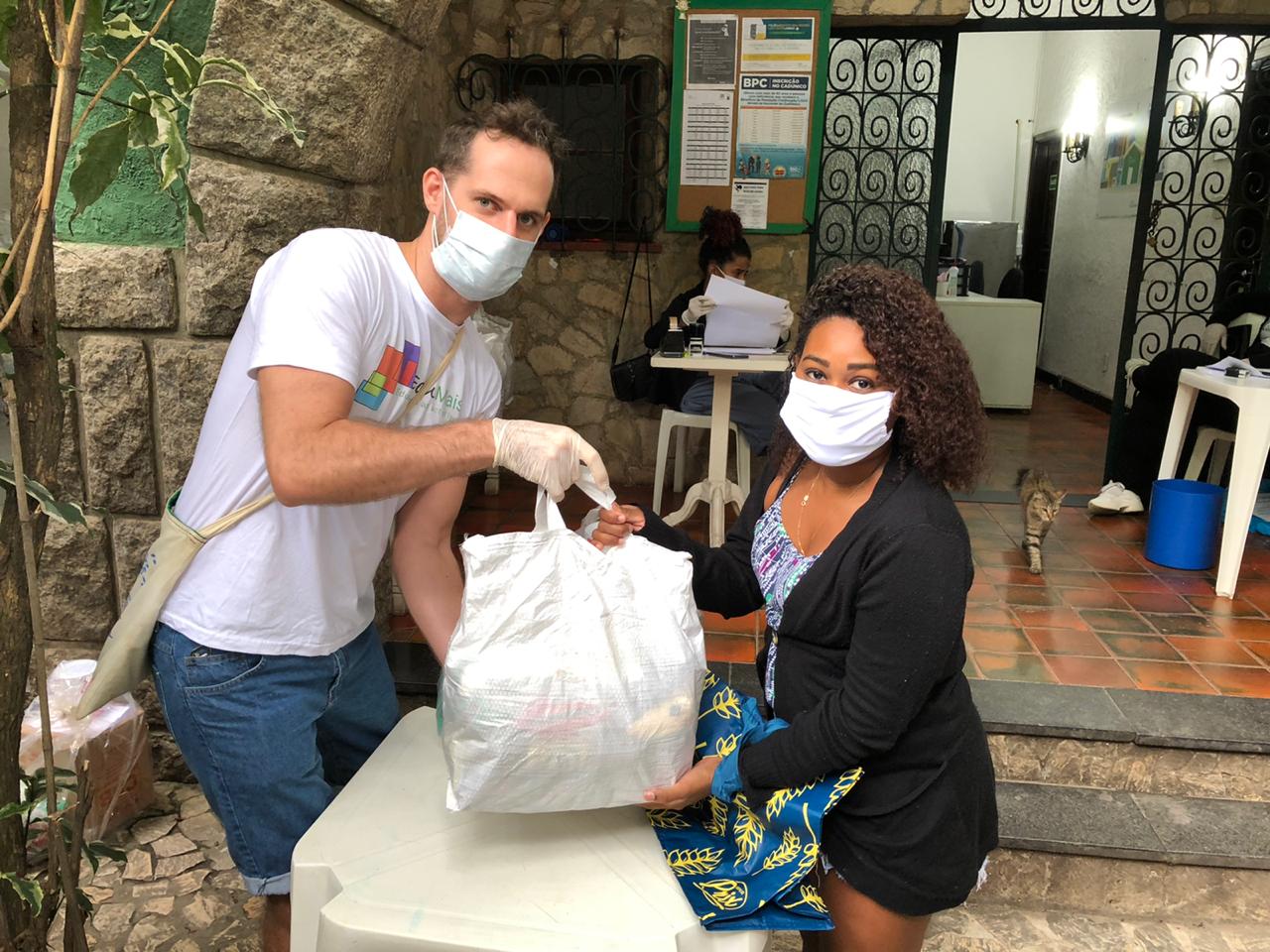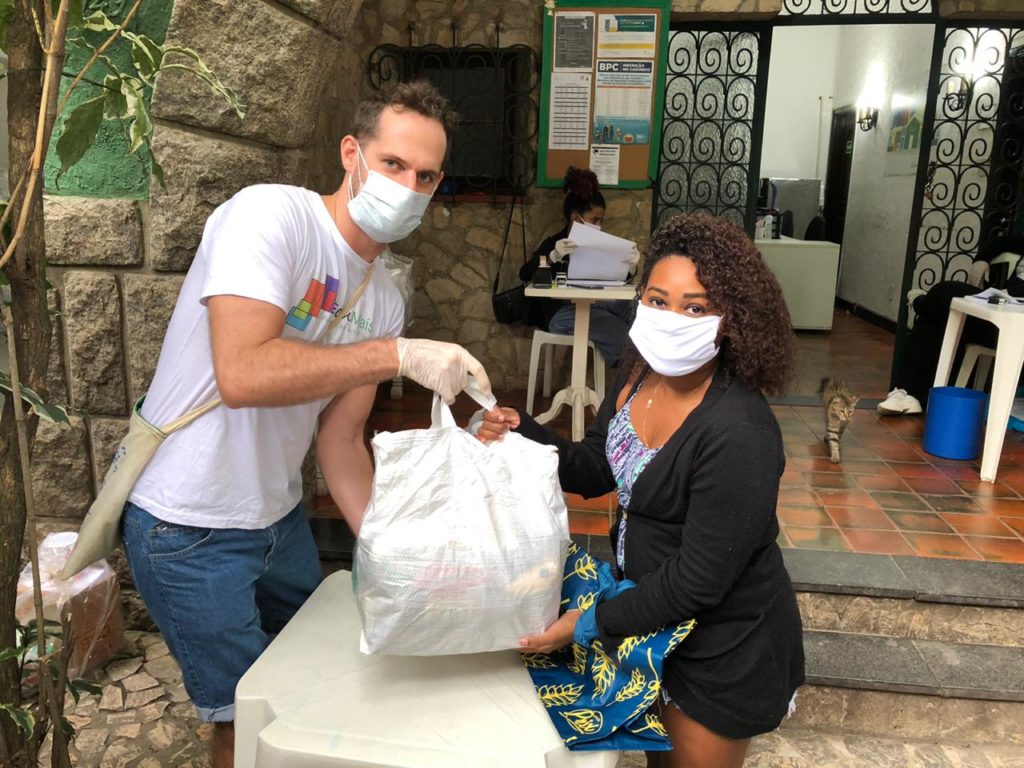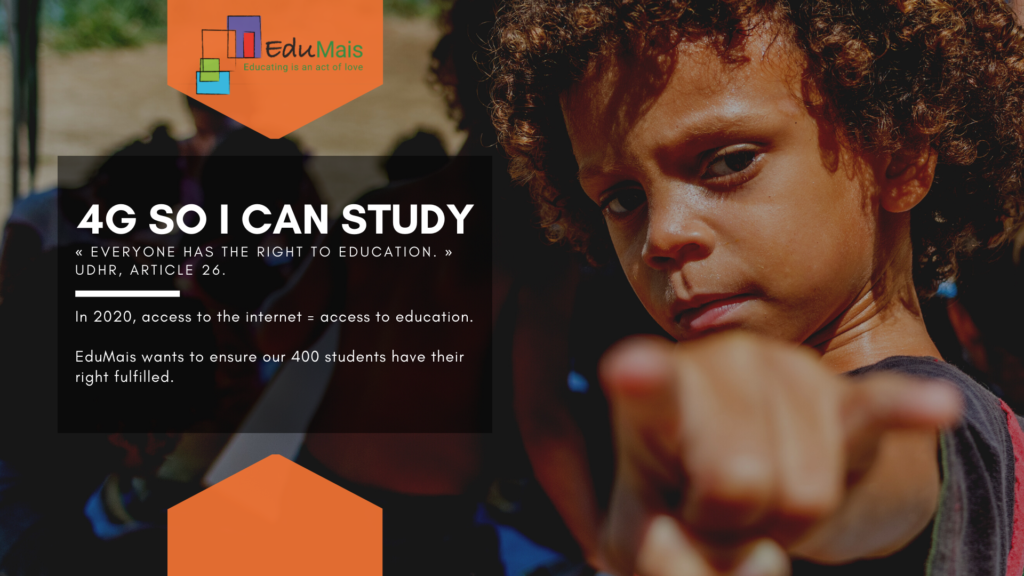Login
Signup
Responding To The Populist Challenge And To The Covid-19 Crisis
Responding to the Populist Challenge and to the COVID-19 Crisis: EduMais, a Carioca Case Study

By Emma Cosmao – EduMais Project Director
Given the current political and social context, EduMais has had to adapt its response capacity. In particular, the rise of populism and the COVID-19 pandemic have highlighted the need for new approaches. The following report evaluates how volunteers and EduMais’ leadership perceive these changes and identify subsequent key initiatives. Furthermore, it makes important recommendations aimed at improving future efforts. The main objective of EduMais is to provide quality and mindful education to empower local youths in the wake of an ever-changing society.
Who are EduMais?
EduMais focuses on providing education to children in the favela of Pavão-Pavãozinho/Cantagalo (PPG). Its uniqueness lies in the use of Positive Discipline and Diana Nijboer’s firm leadership. “Education is an act of love”, and not of pity.
EduMais handpicks volunteers for their character and dedication to the work. When asked, “Why EduMais?”, volunteers have two main angles. Firstly, EduMais’ approach is unique, focused on providing tools rather than answers. Thus, it gives students a safe space to learn English, entrepreneurship, game design, and more. Secondly, Diana’s leadership is central. She treats all equally, and as family, so long as they are willing to put in the work.
The consciousness of the political situation and its impact on human rights work in the country differs. Half of the surveyed volunteers stated there was no correlation between their work and the rise of populism in Brazil. In contrast, the other half iterated their concerns related to access to education, military operations in PPG, and the mental health of students. Diana Nijboer, the founder, believes that the changing landscape of Brazilian politics has had a profound impact on the work EduMais conducts.
EduMais: Board & Finance
EduMais’ approach is transparent from start to finish. The financial reports are readily available, signposted clearly on the website, from 2016 to 2018. The updated board information is clear on the Stitching EduMais Foundation page.
All board members are Dutch, including the Director of EduMais. The yearly reports indicate that to be a board member, the individual must have a personal affinity to Rio and the project. Yet, it is notable that all members be non-native to the city. Diana has iterated a long-term plan for EduMais to become cyclical, no longer heavily reliant on foreign help. However, due to it being only 4 years old, this has not yet been achieved.
The importance of diversity on the board cannot be understated. ‘Foreignness’ of certain NGOs can effectively discredit them, according to Gavarito’s ‘Playbook for Human Rights Actors’. To counter this possibility, one of the recommendations is to shift demands for donations from an international to a national sphere.
Furthermore, the opacity of EduMais’ finances on their website makes it hard to understand the origin of donations. Therefore, another recommendation would be to increase board diversity to include Cariocas. Nonetheless, EduMais compensates for this shortcoming with local collaboration. EduMais has been in close collaboration with Solar Meninos de Luz, who have had a school open in PPG for almost 30 years. This close collaboration has created a deep-rooted trust for EduMais in the community. The threat of delegitimization comes from the top, rather than from beneficiaries of the work of this NGO.
The financial report (see below) provides a clear picture of EduMais’ bank account.
EduMais’ 2018 Financial Report: a Need for More Transparency
Half of all (20,000 euros) donations for the 2018 financial year come from a “main sponsor”. However, they remain opaque. To have one source be so influential undoubtedly impacts the work of EduMais. Also, such a large portion of funds have come from specific fundraising activities. Beyond this table, the report enumerates how the money has been spent. Unsurprisingly, the money goes to the programs it details on the website, and whatever remains already has an allocated purpose.
Pavão-Pavãozinho and Cantagalo: Setting the Scene
Pavão-Pavãozinho/Cantagalo is the perfect synthesis of the current challenges to Brazilian democracy. It is located between the upper-class area of Ipanema, the middle-class, and the world-famous Copacabana. However, the government and other Cariocas ignore it.
The contrast of worlds is evident when approaching the iconic steps to enter PPG. Hidden in a corner between two tall apartment buildings, the colorful steps lead up to Rua San Roman. Under the crippling heat and humidity, a new world appears. Houses on top of one another, and a smell one cannot describe. It is a city within a city. There’s the local kilo restaurant, the local barber-turned-gossip-spot, and, of course, the school.
The problem not only ignored; it’s repressed. The issue is institutional, as Diana Nijboer declared, confirming literature trends on Brazilian democracy. Favelas are not included in the conversation within the democratic system because many residents of these parts of the city are not registered voters, nor they have the incentive to be.
Violence & Fear in Pavão-Pavãozinho/Cantagalo: a Testimony
One family testifies that “the favela has different areas: Cantagalo, Pavão, and each has different characters (Pavão is further up, accessible only by bondinho (cable-car). Up until recently, there were two UPP (Pacifying Police Unit) posts – one near an old hotel in Cantagalo, and then one in Pavão. They were strategically placed in areas of prominent trafficking. The UPP has closed the Pavão section. Traffickers are taking over, with huge weapons, occupying the area, paying bars to stay open. These places become recruitment grounds for trafficking. Consequently, violence increases.
John’s family recently moved “down” the favela, where it’s usually safer. However, they live near a bar controlled by traffickers. Within the past week, the scene has drastically changed: an increase in parties, drugs, and weapons. Diana describes a man following her as she was going in to visit John’s family. She talked with John’s mother inside the house, but the traffickers were smoking joints right outside, occupying the space and provoking the situation. When asked why they don’t go to the police, John’s mother responds “if we go to the police, we don’t have a life anymore”.
Diana mentions that if traffickers take over the area, they will live in a space where helicopters fly over – an opportunity for traffickers to shoot, and police to hit the traffickers – and since John’s house is in an open area, with a beautiful view of Copacabana, they are more vulnerable to lost balls – the real killer in the favelas. This will affect the kids “I can’t imagine what it’s like, she says, It’s like John, he’s 6 years old. Of course, he knows who they are, but he knows nothing else.”
The Populist Challenge
The failure of Bolsonaro’s administration to improve the education system illustrates a pressing need for NGOs to continue to act.
Academics are calling for social movements and NGOs to “step up to defend civic freedoms”. There is a sense of immediacy. In late 2017, things were noticeably bad, and EduMais & Meninos de Luz had to close operations due to the threat of stray bullets and police violence.
However, EduMais volunteers and Diana hold different perceptions of the impact of populism on EduMais’ role. Two volunteers stand out. Stéphanie Moscoso highlighted the increased social inequality and change in educational policies, which makes EduMais’ work more vital. Hannah Van Akkeren describes a cheering pro- ‘Bozo’ crowd in the face of militarized action in PPG. “They were cheered for the death of members of the PPG community who they perceived as a big threat. […] I believe the police killed a few people that day.”, she states.
Diana is much more intransigent in her analysis. The worry of a government that ignores those living in the favelas is constant. However, there’s an additional concern that foreign aid will be harder to give with an increasingly authoritarian regime. Freedom of expression is in danger, as evidenced by the assassination of Marielle Franco in 2018. At the same time, the Bolsonaro campaign showed its divisive and authoritarian nature. The concern is that foreign aid will be the next target of the president, who is adamant to exclude favela residents from Brazilian civic life. Operating in such a context has been a key factor in EduMais, both as an NGO and the individuals who represent it.
In the face of rising populism, what is the role of EduMais?
It shifted from solely providing English classes to much more. EduMais is not focused on a glossy short-term solution. The goal of the English and entrepreneurship classes, and the after-school program is to demonstrate an alternative path. EduMais gives people a space to learn and to reach further than what their environment might have previously enabled them to. In this context, EduMais must stand by its mission, and encourage students to continue reaching further than the steps leading to the bottom of Rua San Roman.
Crisis Mode: Responding to COVID-19
As the majority of volunteers are international, there was a scramble to head home. Yet volunteers only intensified their efforts as things were moved online.
Many volunteers, including Jake Delorme or Juliette Bonnepart, noted that the pandemic freed time to give back to EduMais and step up in their volunteering roles. To Diana, it is clear that, in terms of volunteer commitment, the pandemic has been a blessing. Additionally, the role of EduMais as an NGO widened. Notably, it turned to immediate crisis response (providing food) due to temporary suspension of classes and freezing of incomes for local families. EduMais also had a headstart on fundraising for food baskets, with the donations page launched on March 3rd. This campaign continued until December 1st, reaching its monthly target of 7638€ almost every month. Furthermore, it continues to adapt to its role with new campaigns, such as 4G So I Can Study.
“4G So I Can Study”: Responding to Human Rights Violations due to COVID-19
Diana and I spent a long time discussing the rising social inequalities due to the COVID-19 pandemic. In particular, we discussed those resulting from disparity in access to the internet and adequate learning conditions. The response has been the 4G So I Can Study Project, aiming to provide internet access for students to attend classes. This is an example of how the role of this Education-focused NGO has expanded.
Expanding EduMais’ Role During the COVID-19 Pandemic
The reason for EduMais’ expanded role is twofold. First and foremost, it is a reflection of the government’s shortcomings. Its failure to pre-empt the impact of COVID-19 on the most vulnerable communities is a deliberate act. Its aid package of 600BRL/ month for informal workers often did not reach families. When it did, it did little to help. In any case, this package has now come to an end and was unpopular with Bolsonaro throughout its rollout.
Secondly, the Brazilian Real has plunged in value. Therefore, fundraising has turned to the international space. This is more effective, with each Euro fetching further than usual. However, this shift presents its own challenges. Many European households have found their incomes decreased, which has led to fewer donations. Why should a French person donate to a cause in Brazil, with so much going on at home?
The 4G So I Can Study project has the unique attribute of appealing to people in the same situation. The model of online learning has caused much debate in universities. The project thus provides an opportunity to take note of our privilege. Indeed, our qualms with this format have nothing to do with accessibility.
A week after its launch, the project had been funded to 32% (updated December 6, 2020).
Concluding Remarks: The Tragic and Terrifying Cocktail of Populism and COVID-19
A Troublesome Political, Legal & Social Framework
Sadly, the situation is not unique to Brazil. The global pandemic has enabled leaders to take emergency measures in the interest of safeguarding their populations.
Restrictions of freedom of movement have allowed populist leaders to weaken democracy in the name of the pandemic. This is particularly poignant in countries where democracy was already treading a fine line (Hong Kong, Belarus, The Philippines). Here, emergency measures may lead to further restricted civilian freedoms. In Brazil, the manipulation of public panic has created a perfect conflagration of elements. Consequently, it’s harder for EduMais to complete its work. Parallel power, which has been observed in the past few months, is of particular concern. There are two main reasons for the rise in alternate power in this period:
- Families don’t go to the police. Racist discourse by the government, coupled with other factors, erodes trust in the police. Additionally, they’re aware of the backlash they will receive from the traffickers.
- New laws passed during the pandemic state that there cannot be interference from the police in favelas. They argue that it is impossible to socially distance in the cramped alleyways.
These are the current challenges to EduMais’ operations in Rio de Janeiro in 2020. I have shared Gavarito’s “Playbook for Human Rights Actors” with Diana and some volunteers, as part of a long-term strategy. Simultaneously, we continue to evaluate the political situation. At present, EduMais’ best course of action is to continue its role as an educating force.
Future Foward: the Importance of Education
Education is the foundation for more options. For so many students, it has been a way of reaching further and expanding their horizons. To continue this role during the pandemic, access to the internet is crucial, thus the new campaign. The provision of basic food and sanitary supplies is equally important, which was addressed through the COVID-19 Relief Fund. Education is also the most powerful way in which EduMais can respond to the challenge of populism. Providing education to disenfranchised communities removes the feeling of invisibility. It also teaches locals their rights and to be confident in their abilities. EduMais should continue to keep a sharp eye on politics and keep affirming its role. It is needed now more than ever.
We, at EduMais, work tirelessly to make classes more valuable for our students. Do you want to support the kids? Then join our team in Rio de Janeiro and help make their dreams and future come true! We’d love to hear from you! Contact us at info@edumais.org.




